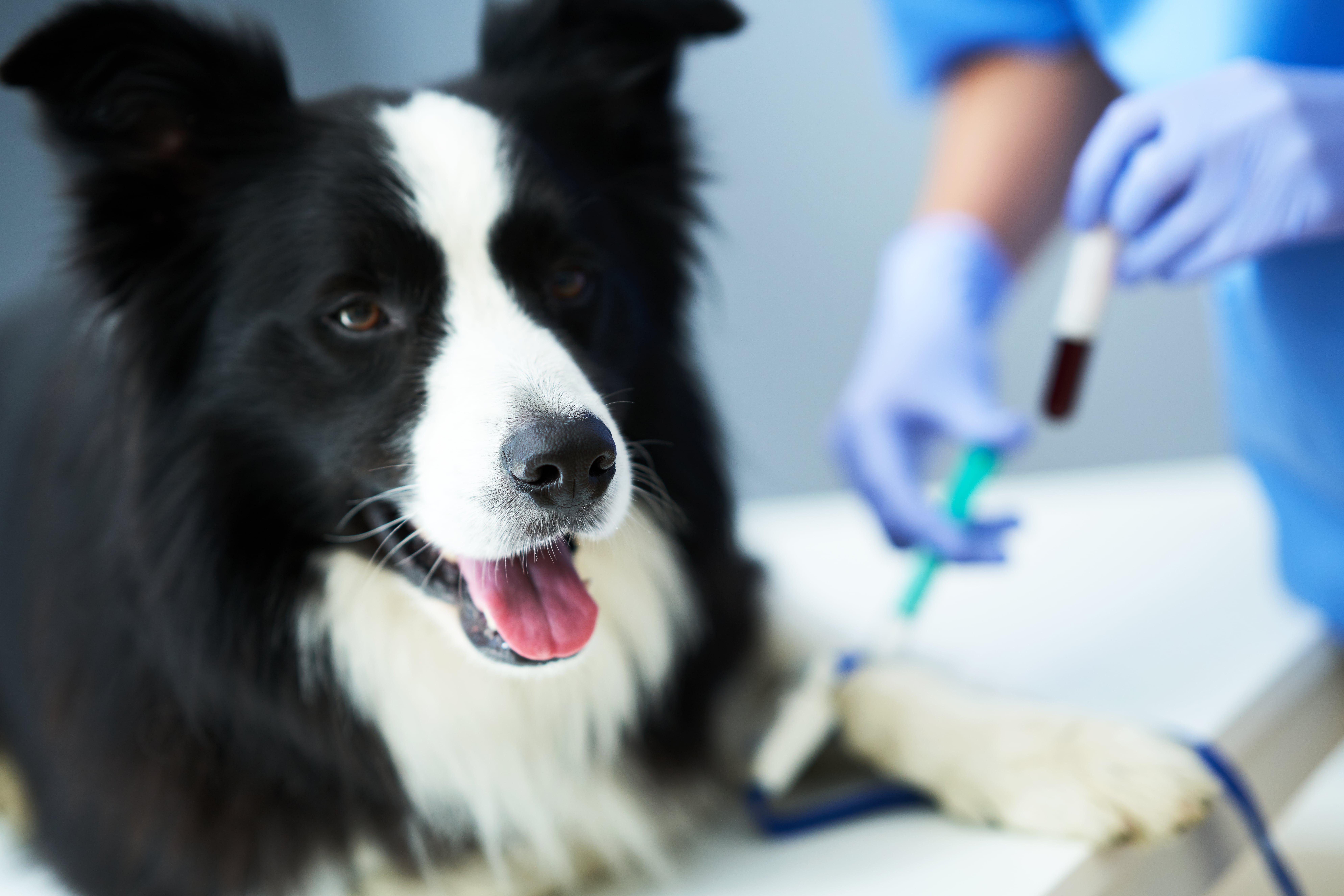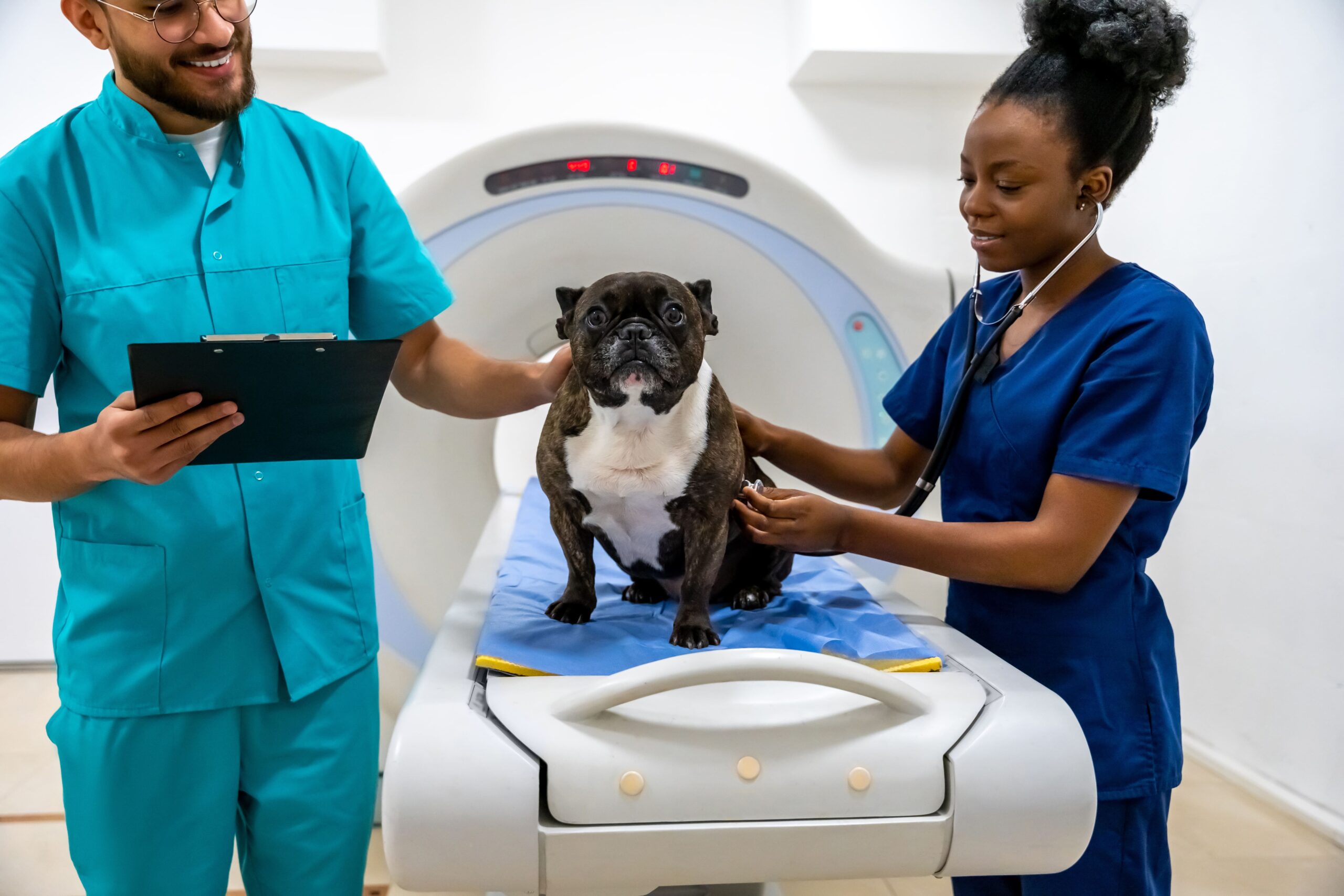Diagnostic Services at Broadmoor Animal Hospital in Shreveport, LA
At Broadmoor Animal Hospital, we recognize that early and accurate diagnosis is the cornerstone of effective veterinary care. Our comprehensive diagnostic capabilities are tailored to meet the unique needs of your pets, whether they are dogs, cats, or specific exotic animals like rabbits, ferrets, guinea pigs, some reptiles, and certain avian species. We are committed to providing the highest quality care through state-of-the-art diagnostic tools and personalized treatment plans that ensure your pet receives the best possible care.

Comprehensive Diagnostic Tools and Tests
At Broadmoor Animal Hospital, our facility is equipped with advanced diagnostic tools that allow us to thoroughly evaluate and monitor your pet’s health. We offer a variety of diagnostic services to accurately diagnose both common and complex health issues. Here’s a detailed look at some of the key diagnostic services we provide:
Bloodwork is a fundamental component of veterinary diagnostics, providing critical information about your pet’s internal health.
Urinalysis is another vital diagnostic tool that provides insight into your pet’s urinary tract and kidney health.
Cytological examinations involve the study of cells taken from various parts of your pet’s body, such as the skin, ears, or lumps.
The 4DX test is a rapid, in-house screening tool that helps us identify some of the most serious vector-borne diseases in pets.
Regular fecal examinations are essential for maintaining your pet’s gastrointestinal health.
Biopsies are a critical diagnostic tool used to examine tissue samples taken from suspicious growths or masses.
Radiography, commonly known as x-rays, is one of the most frequently used imaging tools in veterinary medicine.
Ultrasound is a non-invasive imaging technique that provides real-time images of your pet’s internal organs.
The diagnostic tools and tests available at Broadmoor Animal Hospital are integral to providing your pet with the highest standard of care. By utilizing these advanced technologies, we can detect and treat health issues early, ensuring the best possible outcomes for your beloved companions.
Specialized Testing and Partnerships with External Labs
We collaborate with leading external laboratories to offer advanced diagnostic tests that aren’t available in-house, ensuring your pet receives the most accurate and detailed results. These partnerships provide access to specialized testing like genetic analysis and advanced blood panels, which are essential for diagnosing complex conditions. The labs we work with are known for their accuracy, reliability, and quick turnaround times, allowing us to promptly begin appropriate treatment for your pet.

Endoscopy Diagnostics
Endoscopy is a minimally invasive procedure that allows us to examine the internal organs and tissues of your pet without the need for large incisions.
When a case requires expertise beyond our scope, we refer your pet to trusted specialists, ensuring they receive the best possible care. We collaborate closely with veterinary oncologists, neurologists, and other experts, as well as external labs, to provide advanced diagnostic tests and treatments. This ongoing partnership ensures that your pet benefits from a comprehensive and coordinated approach to their health, with all parties working together for the best outcomes.
The Importance of Diagnostic Services for Your Pet’s Health
Diagnostic services play a critical role in maintaining and improving your pet’s health. At Broadmoor Animal Hospital, we believe that regular diagnostic testing is not just for when pets are sick but is also an essential part of proactive and preventive care. Here’s why these services are so vital:

